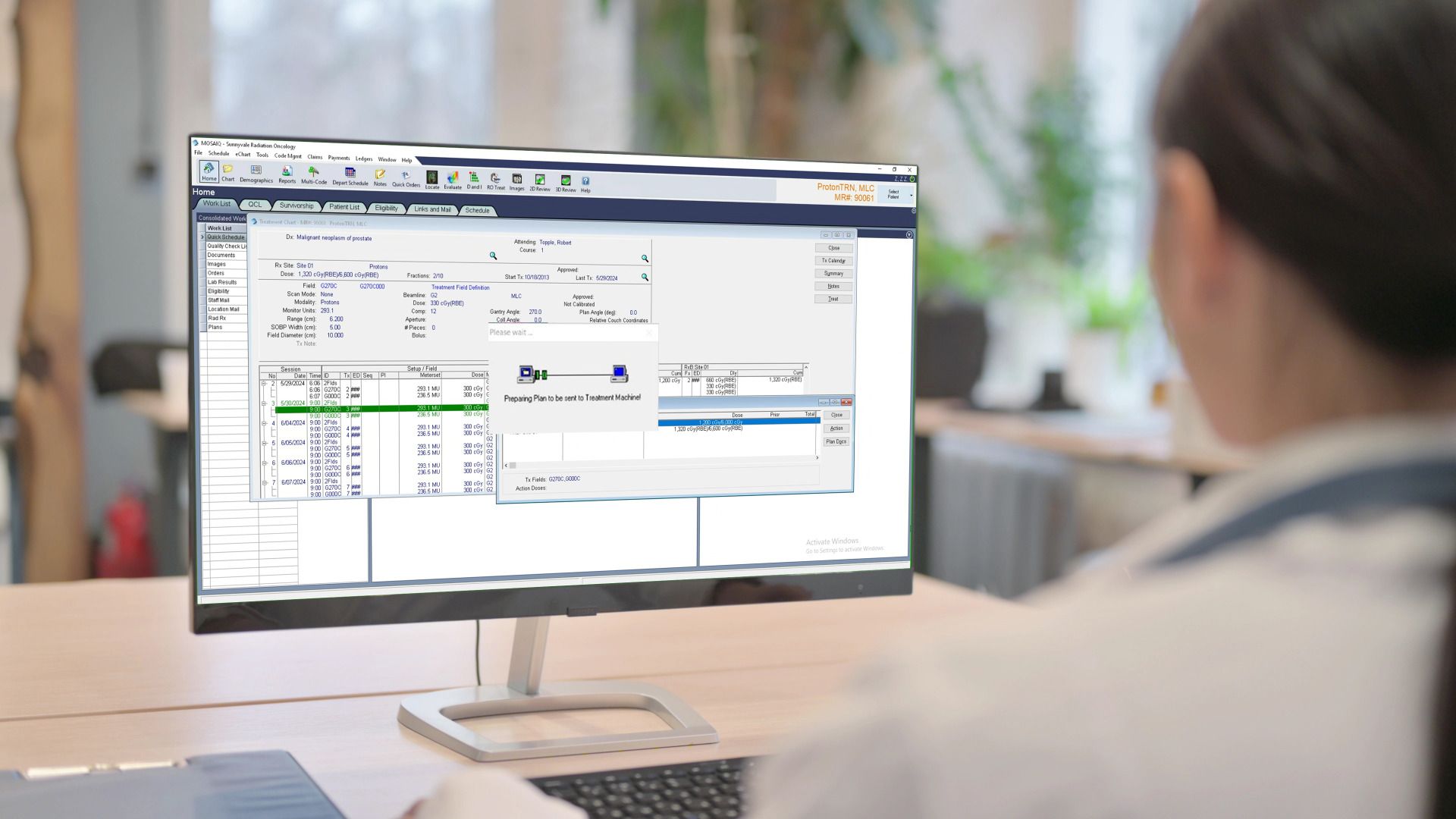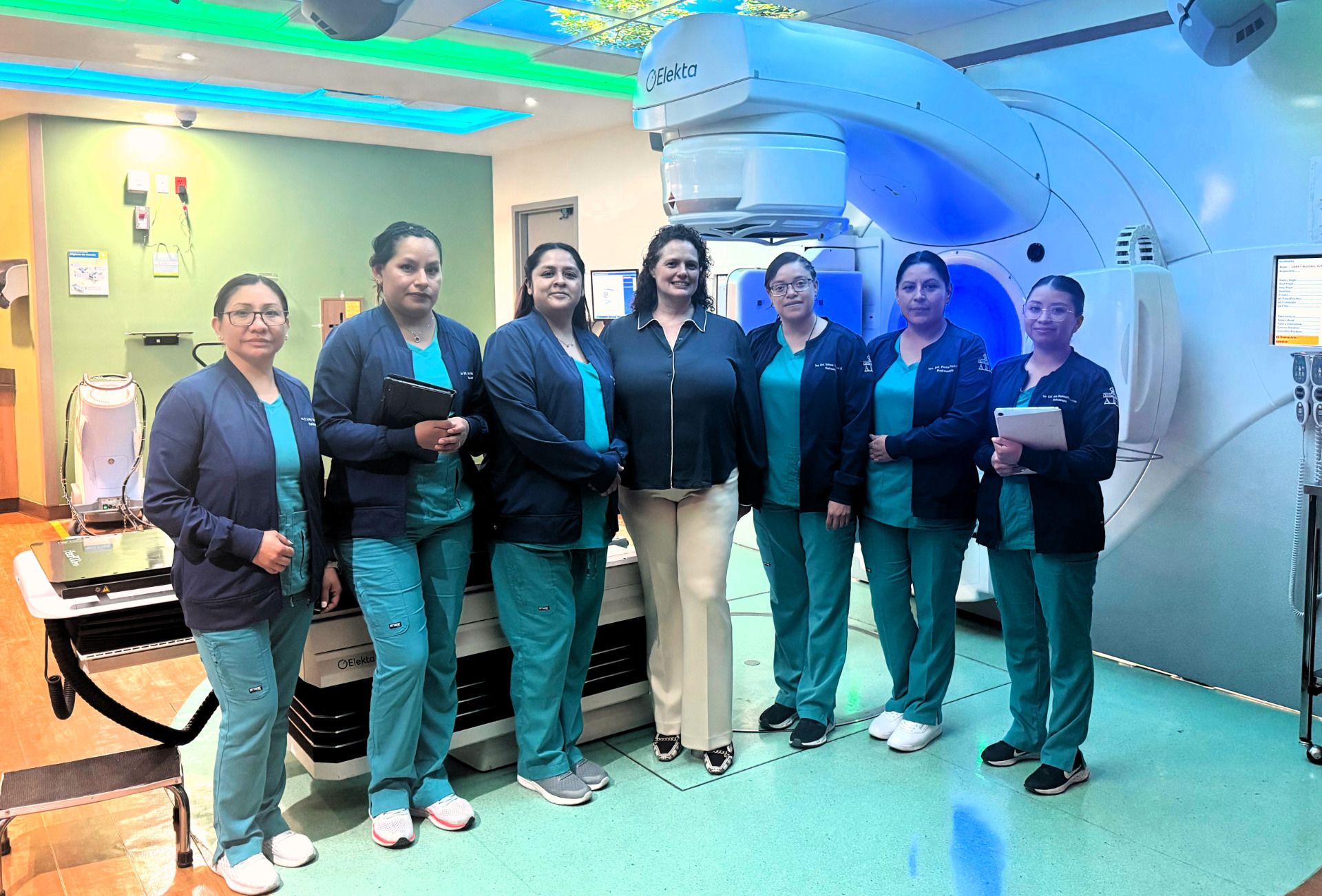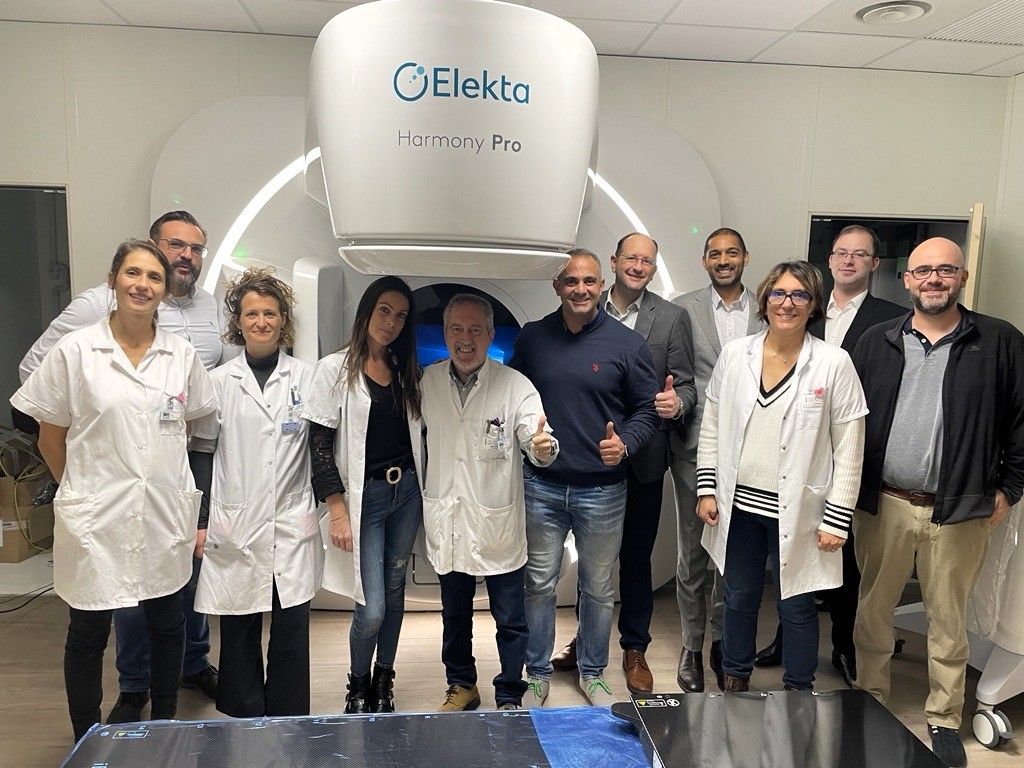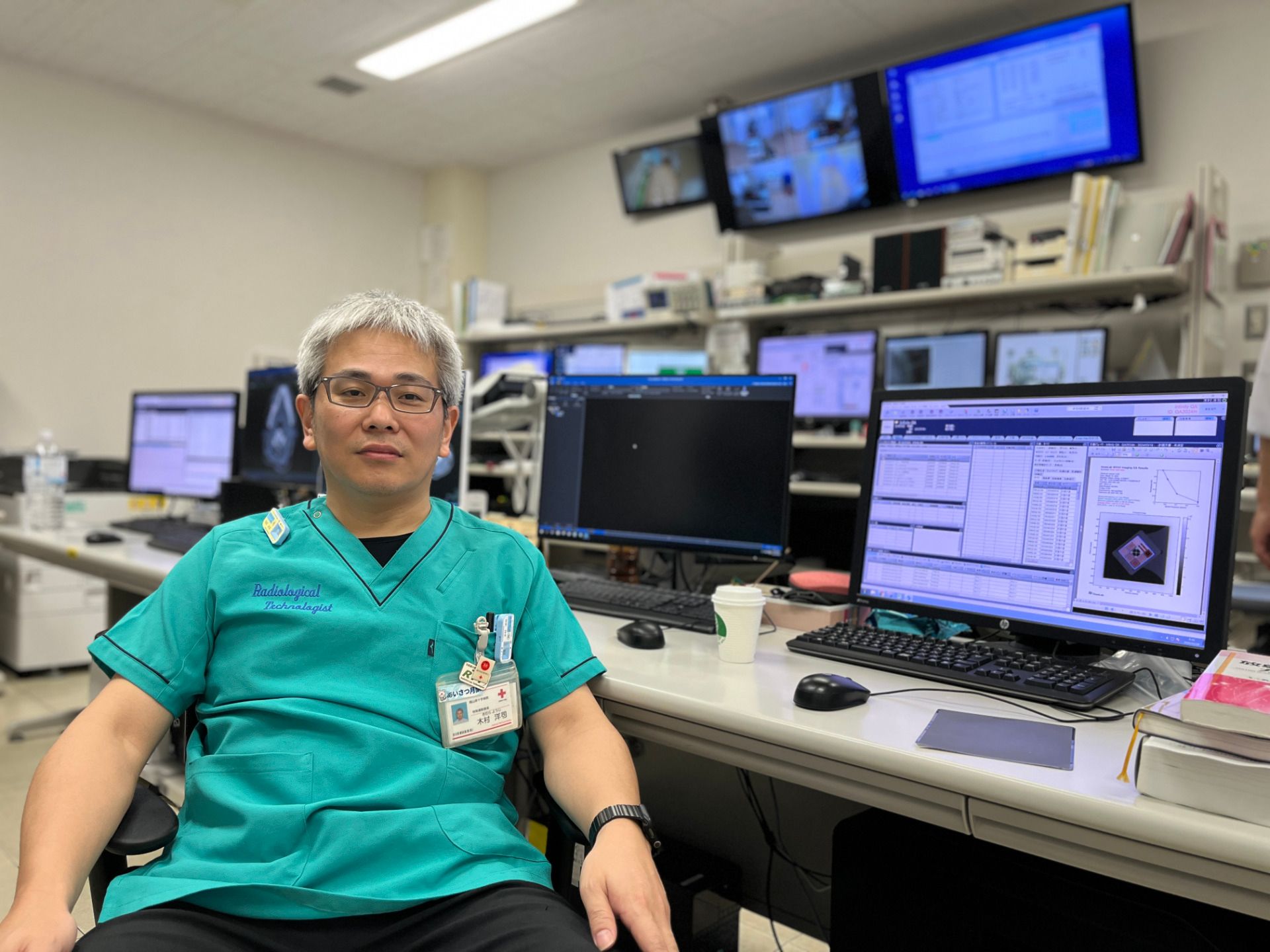Annette Harley named 2025 Oncology Data Specialist of the Year
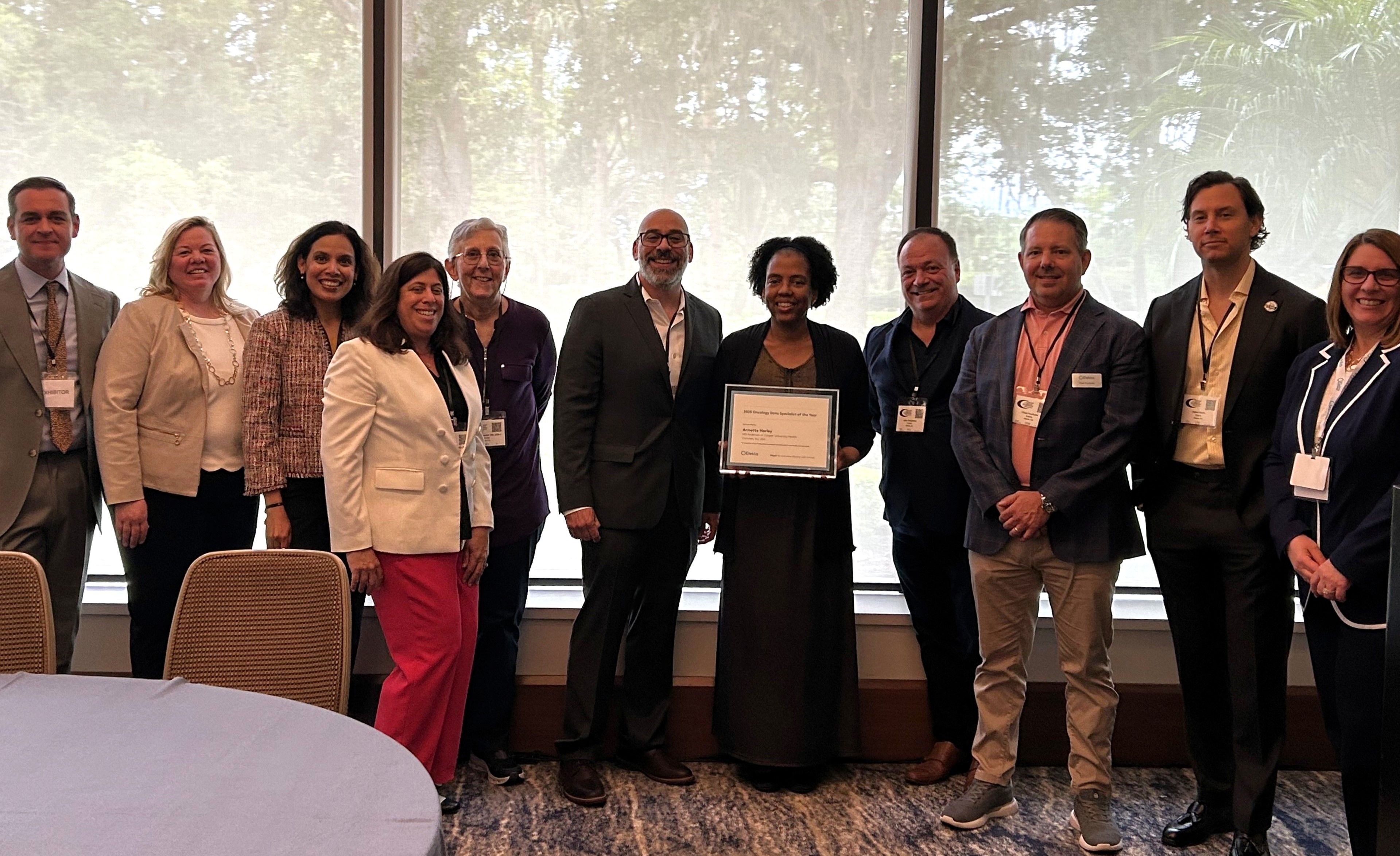
Recipient known as a leader, mentor and guiding force behind countless initiatives
METRIQ user, Annette Harley, ODS-C, has spent 25 years immersed in oncology data, a field where the information she curates helps drive advances in cancer treatment, research and prevention. Her dedication recently earned her Elekta’s 2025 Oncology Data Specialist (ODS) of the Year award, which honors professionals whose contributions have made a difference to their hospital’s registry. Harley’s work goes well beyond collecting statistics where she is employed at Cooper University Health in Camden, New Jersey. She also leads, mentors and inspires her team through countless initiatives that have strengthened not only her department, but the hospital as a whole.
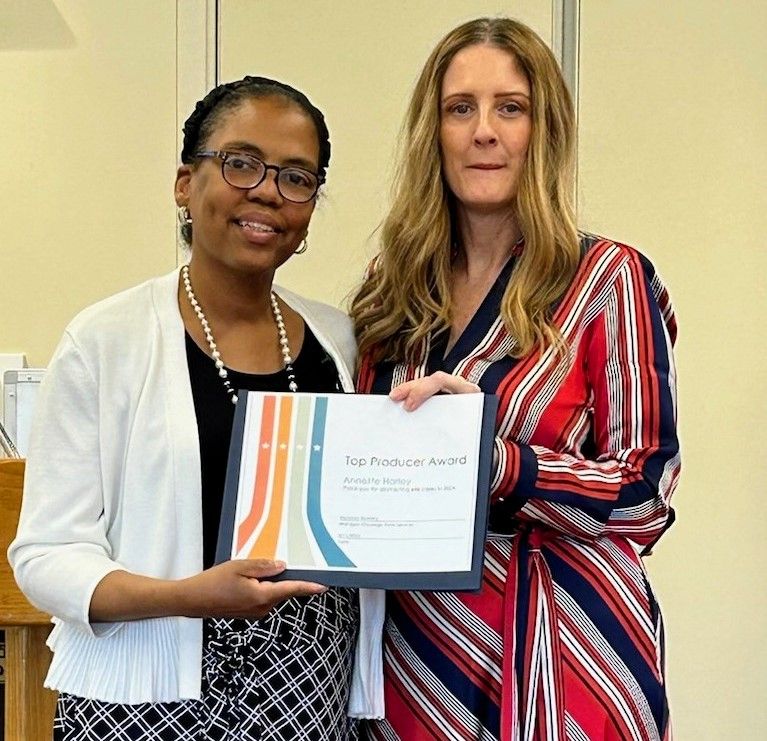
Starting her career at the Veteran’s Affairs (VA) Medical Center in East Orange, New Jersey, in 2000 and receiving her certification from the National Cancer Registrars Association (NCRA) in 2004, Harley built her career on a foundation of accuracy and empathy. A team member described her contributions, explaining that “over the years, she has refined her skills to review thousands of cases for reportability; she abstracts over 600 cases a year, creates detailed data reports for various departments, performs quality reviews, and prepares presentations for her peers” and noted that she is known as the department’s “help desk” because she always makes herself available to answer questions and provide training and mentorship when needed.
In addition to her core responsibilities, Harley plays an important role in enhancing team morale and communication. She serves on Cooper’s Rewards and Recognition Committee, where she leverages her favorite skill – team engagement – to foster a collaborative environment. “I spend most of my time abstracting – which is creating a detailed snapshot of a patient’s cancer journey including details about their diagnosis, extent of disease, treatment and follow-up information – but I also make a point to support my team,” she notes.
To kickstart the week, she sends out a registry newsletter that keeps everyone informed of productivity metrics, departmental goals and even motivational quotes. She also organizes the team’s Member of the Month award and celebration, implemented a monthly Quality Olympics initiative and coordinated festivities during National Cancer Registrar’s Week.
“The journey of someone’s cancer care is challenging. I feel for them and understand how life-changing it is. I never want to look at a patient as just a number or a case.”
Recognizing the challenges faced by people undergoing cancer treatment, Harley emphasizes the importance of compassion. “You have to be empathetic,” she explains. “The journey of someone’s cancer care is challenging. I feel for them and understand how life-changing it is. I never want to look at a patient as just a number or a case.”
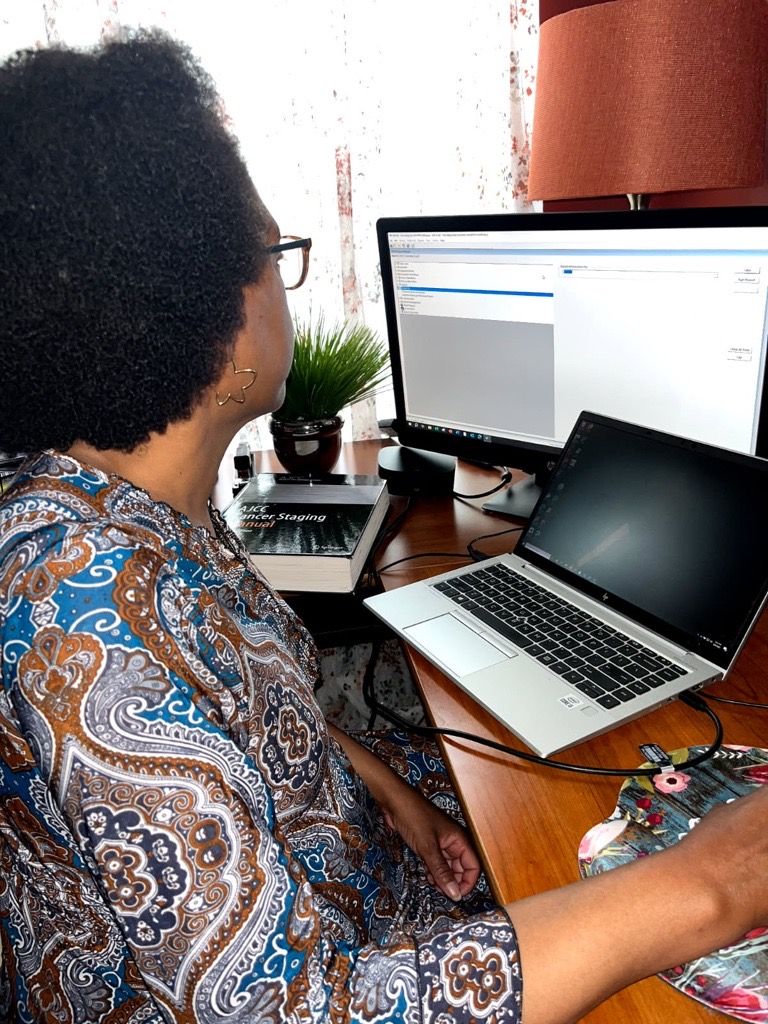
This balanced approach helps her maintain focus in a field that demands flexibility and adaptability, particularly as coding standards and treatment protocols continuously evolve. For those starting their own journeys in oncology data, she offers this advice: “Don’t be shy to ask questions if you encounter challenges while abstracting. Every misinterpretation to the rules is not a mistake, but a learning opportunity to sharpen those ODS skills!”
Central to Harley’s philosophy is the guiding principle of the biblical “golden rule” from Matthew 7:12: “Do to others what you would have them do to you.” Treating others with love, kindness and respect is something that has defined her career and is recognized by those who nominated her. As one team member commented, “I couldn’t think of a better person to be honored with this award.”
"With METRIQ, I can easily access my saved reports and simply adjust the dates as needed. In particular, I appreciate the functionality of the Query Wizard. It allows me to efficiently run my reports on a weekly, monthly, and quarterly basis."
On the technical front, Harley also acknowledges the importance of user-friendly, modern tools in her daily work. "With METRIQ, I can easily access my saved reports and simply adjust the dates as needed. In particular, I appreciate the functionality of the Query Wizard. It allows me to efficiently run my reports on a weekly, monthly, and quarterly basis." Beyond routine reporting, her team also leverages METRIQ to produce detailed analyses for clinical trials, leadership reviews, and research initiatives, ensuring that every data point supports informed decisions.
Harley reflects on the honor, stating, “I was initially shocked to learn that I had been named Oncology Data Specialist of the Year. I feel honored that my director and team nominated me. Everything I do for the team; I do because I genuinely enjoy it. Beyond my abstracting and registry tasks, I love fostering team building and bringing us together in this remote world. I never imagined I would be acknowledged in this way and it's truly encouraging that my team wanted to shine a light on these efforts. None of this would have been possible without my director, Maureen Romero, who has given me the space to use my creativity and the opportunity to use that creativity to strengthen our team.”
What is a cancer registry?
A cancer registry collects and combines detailed information about cancer patients and the initial treatments they receive to answer questions like:
- Is there a certain area of a state where women are finding out they have breast cancer at a late stage, when it's harder to treat?
- Where will prevention efforts, like screening, have the biggest benefit?
- What groups of people are most likely to get a certain type of cancer, like liver or skin cancer?
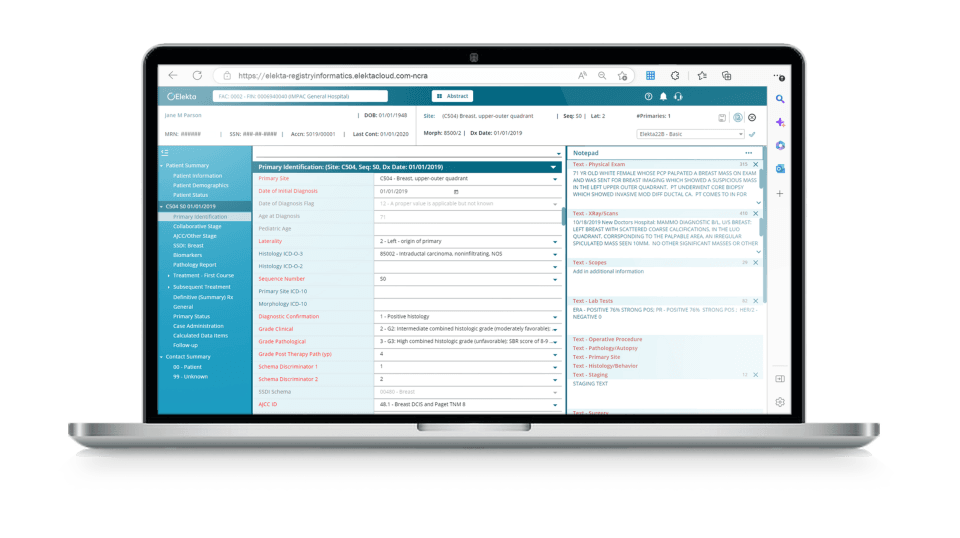
Cancer registries analyze the data collected and share the answers to these questions with other groups, like state comprehensive cancer control coalitions, which work to prevent cancer. These groups may find that some people aren't getting cancer screening tests, or they're making choices that raise their chances of getting cancer. The data may also show that certain groups of people are getting cancer more than others.
Cancer control groups and advocates work to address the problems identified. Then they look to cancer registries for new information to help them know if their solutions are working.
Source: How cancer registries work
Click here for more information on how Elekta can help you drive your registry workflow forward.
LARMET250609

